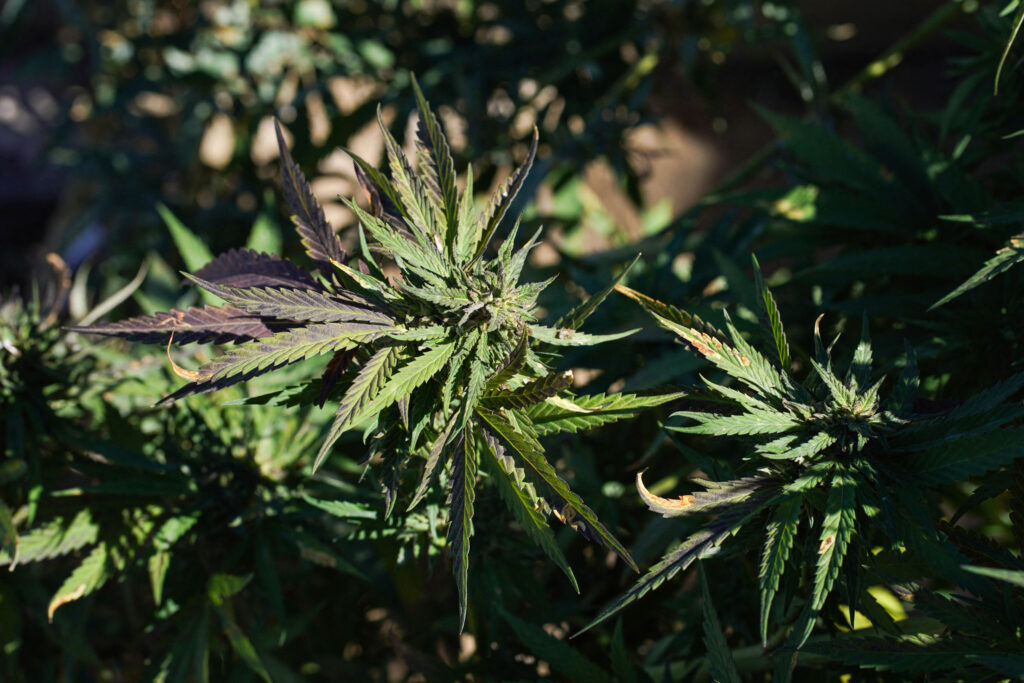Marijuana sold in Arizona has been recalled by the state’s health department due to fungus contamination.
Newsweek has reached out to ADHS for further comment by email Sunday during non-working hours.
Why It Matters
Marijuana is legal for medical use in 38 states, and legal for recreational use in 24 states for those over the age of 21, as Newsweek previously reported. Five more states – Wisconsin, Florida, Hawaii, South Dakota, and South Carolina – could approve use in through legislation this year.
As states allow both medical and recreational use, some state regulations have required testing to protect from medical dangers such as potential aspergillus contamination.
What To Know
The health department issued the recall Friday, warning that the batch in question could contain aspergillus.
“An Arizona marijuana establishment is voluntarily recalling specific products due to possible contamination with Aspergillus,” the Arizona Department of Health Services (ADHS) said in the press release. The marijuana being recalled was sold under the name Odo, Batch PHX1164-ODO, the release said.
Aspergillus is a fungus that can lead to life threatening infections of the lungs and blood stream called aspergillosis, according to the U.S. Centers for Disease Control and Prevention (CDC).
“Most people breathe in Aspergillus spores every day without getting sick,” the CDC website said, cautioning that those who suffer from underlying conditions are at risk of serious medical risk from contamination.
No one has reported any illnesses related to this batch of marijuana, the ADHS said in the press release.
The department said it issued the recall “out of an abundance of caution” after the finding the aspergillus during testing.
Aspergillus contamination in marijuana can cause an allergic reaction or a life- threatening infection. It usually is more of a risk to those who are already sick or have underlying conditions, according to the CDC.
Symptoms can range from shortness of breathing, coughing, fever and wheezing to coughing up blood, loss of appetite and fatigue, the CDC warns.
There are four types of infections that can occur from aspergillus contamination, the CDC website said. These include allergic bronchopulmonary aspergillosis (ABPA), allergic aspergillosis sinusitis, chronic pulmonary aspergillosis ICPA) and aspergilloma, also known as fungus ball, according to the CDC.
People can also suffer from invasive aspergillosis, which means the infection spreads from the lungs into the rest of the body. This condition is usually only found in those with underlying medical conditions, the CDC said.
While aspergillosis is not a reportable disease in the U.S., according to the CDC, the agency says is shows up more among certain groups like cystic fibrosis and sarcoidosis patients.
Data recorded in the U.S. between 2000 and 2013 shows an increase of an average 3 percent of hospitalizations for invasive aspergillosis, with nearly 15,000 hospitalizations associated with the infection in 2014 alone.
People who receive organ and stem cell transplants are also more compromised, with data from 2001 to 2006 showing “invasive aspergillosis was the most common type of fungal infection among stem cell transplant recipients and was the second-most common type of fungal infection among solid organ transplant recipients,” according to the CDC.
What People Are Saying
The CDC said on their website: “Allergic bronchopulmonary aspergillosis (ABPA) likely affects between 1 and 15% of cystic fibrosis patients. One study calculated that 2.5% of adults who have asthma also have ABPA, which is approximately 4.8 million people worldwide. Of these 4.8 million people who have ABPA, an estimated 400,000 also have chronic pulmonary aspergillosis (CPA). Another 1.2 million people are estimated to have CPA after having tuberculosis, and over 70,000 people are estimated to have CPA as a complication of sarcoidosis.”
ADHS said in the press release: “Once ADHS discovered the potential contamination, the Department contacted the facility that produced the products. The licensee took immediate action to work with all distribution and retail partners to remove any potentially impacted products from store shelves.”
What Happens Next
It is unknown how many batches of the product were sold and ADHS has not named the specific location where it was sold.
Anyone who purchased the batch is advised by ADHS to throw it away. If someone has ingested the product and is suffering from any symptoms they should get medical attention.
Read the full article here
